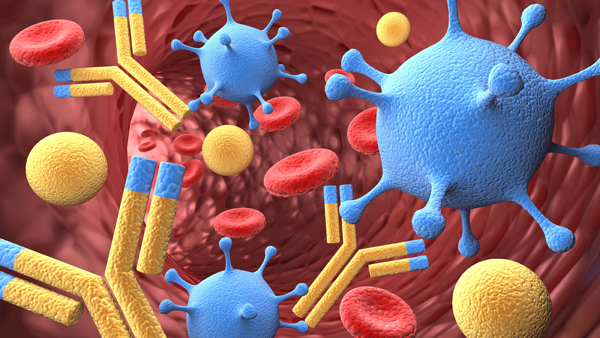Novartis has been championing the experimental cancer therapy – known as chimeric antigen receptor T cells, or CAR-T – which activates the body’s immune system to fight cancerous tumors. CAR-T immunotherapy requires removal of a patient’s T cells, engineering them to recognize and attack tumor cells, and subsequent reintroduction of the immune cells into the body.
While the CAR-T approach has produced some promising results so far, Roche is intent on developing a similarly-effective therapy, without requiring physicians to harvest immune cells from patients. The double-armed agents – called bispecifics – are capable of binding to specific proteins displayed on the surface of cancer cells, while simultaneously complexing with immune cells. The bispecifics then act as a matchmaker to allow the immune cell to destroy the cancer cell.
“If we are successful with this, we think that’s definitely a leapfrog” over so-called custom cell treatments, including CAR-T, said Daniel O’Day, head of pharmaceuticals for Roche. “You’re essentially doing the same thing that you’re doing outside the body in CAR-T, inside the body.”
The results of some CAR-T clinical trials have been very promising. An immunotherapy treatment developed by Novartis, was able to eradicate an aggressive form of blood cancer in 93 percent of children who received the treatment. Further, 18 of the 59 patients who received the therapy were declared cancer-free after just one year.
Other immunotherapy players – including Juno Therapeutics and Kite Pharma – have seen similar success with their treatments. According to O’Day however, the CAR-T immunotherapy may be too time-consuming for widespread use. The treatment does require multiple patient-specific procedures, which are more intensive than traditional drug-based medicine.
“Ninety-six percent of cancer patients were treated outside of academic institutions,” said O’Day. “They are not going to have access to these sophisticated centers that do CAR-T cell therapy.”
Another drawback of CAR-T therapies is their potentially fatal side-effects: the treatment can overstimulate the immune system, leading to a serious reaction known as a cytokine storm. Few patients that participated in clinical trials lead by Novartis, Juno and Kite have experience severe cytokine release syndrome, with some dying as a result. In an effort to prevent these side effects, researcher give patients drugs that calm the immune system during immunotherapy treatments.
“People are beginning to understand that the cell-based therapies that have been so interesting to everyone, including me, CAR-T cells and other derivatives of other cell-based therapies, may have some way to go,” said Sean Harper, head of research and development at Amgen. “Some of the hype is beginning to fade.”
Bispecific molecules carry their own set of hurdles to overcome, including their propensity to disassociate easily. Amgen’s Blincyto – the first bispecific to be approved by regulators in the US – is degraded within the body in just a few hours. Patients taking Blincyto must be hooked up to a pump for a month in order to ensure a continuous infusion of the drug into the body.
Blincyto is approved for use by select patient with the blood cancer, B-cell acute lymphoblastic leukemia. According to Amgen, this is just the beginning for bispecifics, and companies are continually working on making them more stable.
Approximately 42 percent of patients who were given Blincyto in a key clinical trial were cured of the disease. Across all clinical trials of the therapy, approximately 65 percent of participants experienced side effects, with 15 percent experiencing fatal adverse events. Blincyto still carries a risk of cytokine release syndrome, however its incidence is lower than CAR-T therapies.
“Bispecifics are very promising,” said Hans Bishop, CEO of Juno. “Whether they can get to the level of efficacy that CARs can remains to be seen.”












Join or login to leave a comment
JOIN LOGIN